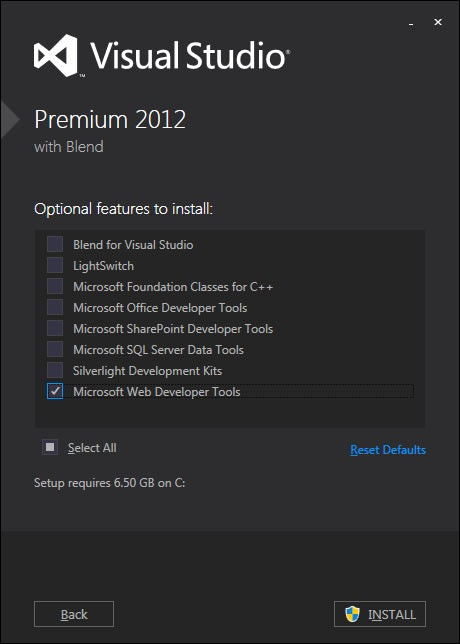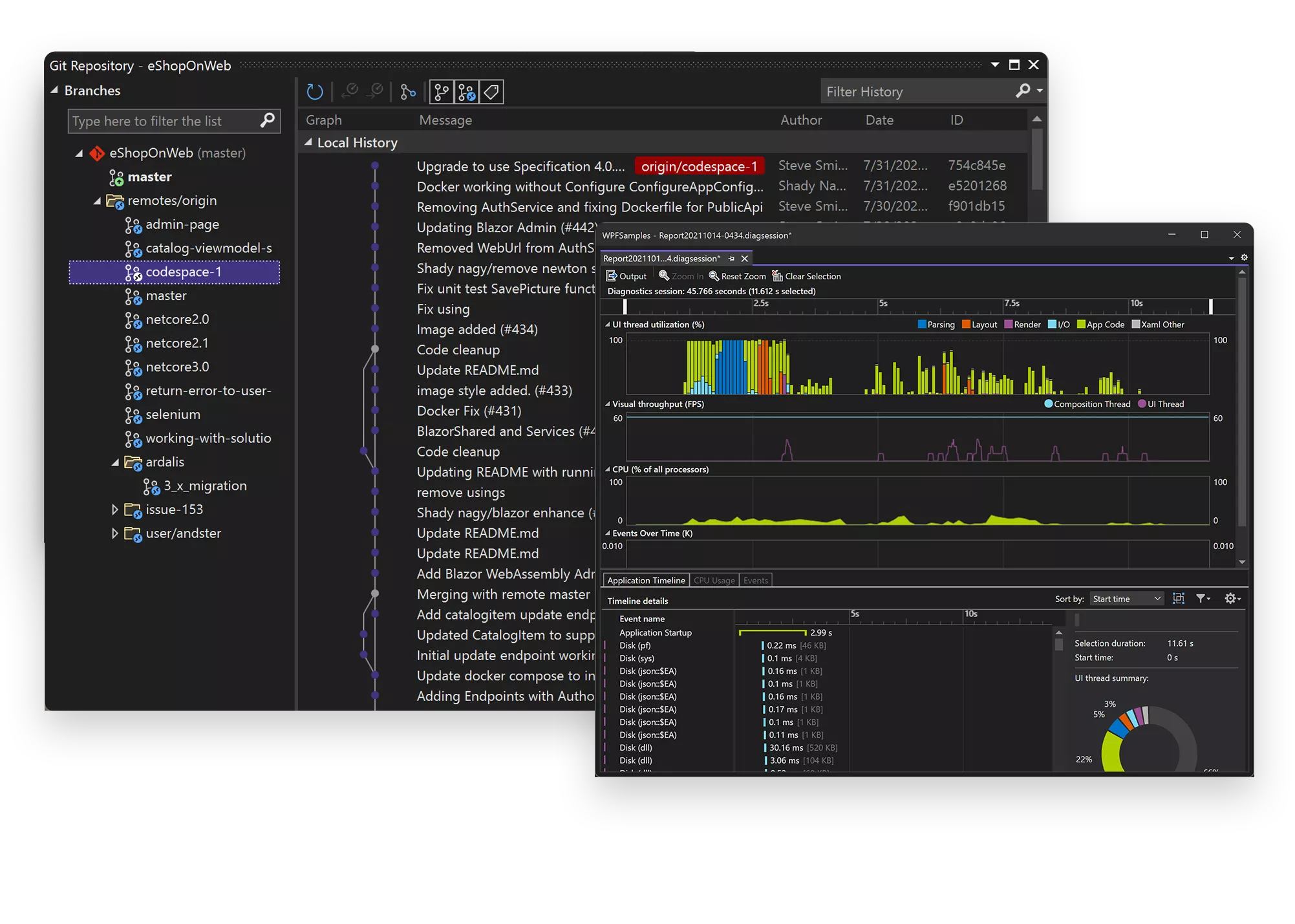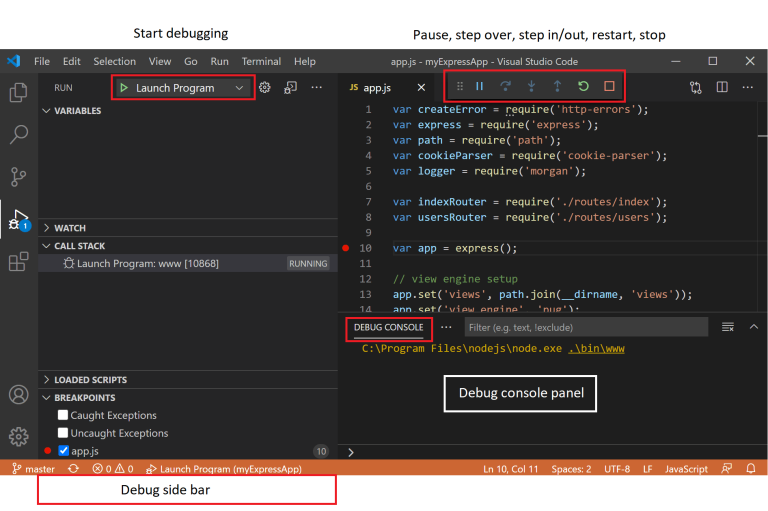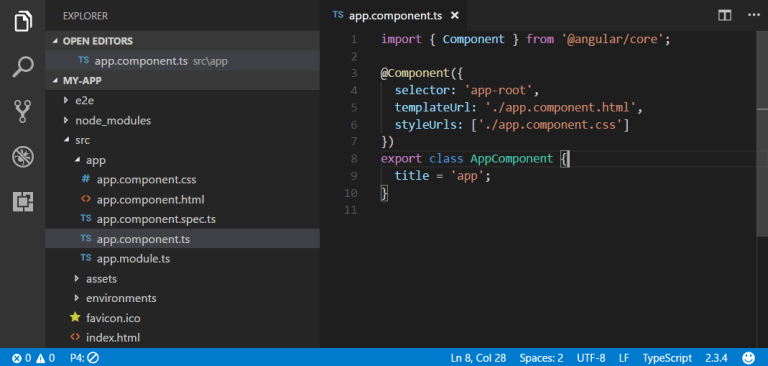
Is Visual Studio C# only?
When considering Visual Studio, one might immediately associate it solely with C# due to its prominence. Yet, Visual Studio’s versatility transcends a single language. This powerful IDE supports a myriad of programming languages, making it invaluable for developers in today’s multi-language projects.
Since its inception, Visual Studio has evolved far beyond its initial offerings. It now supports languages like C++, Python, JavaScript, and more, reflecting the dynamic nature of software development. By 2021, over 75% of professional developers reported using Visual Studio for languages other than C#, showcasing its broad appeal and functionality in diverse coding environments.

Is Visual Studio C# only?
Visual Studio is often associated with C# due to its deep integration with Microsoft's .NET framework. However, it's important to recognize that Visual Studio supports a wide array of programming languages. This includes popular languages like C++, JavaScript, Python, and even Ruby. Developers can switch between these languages seamlessly within the same development environment. This flexibility makes Visual Studio a go-to tool for multi-language projects.
Since its release, Visual Studio has continually expanded its support for different languages. This adaptation has been crucial for its sustained popularity among developers worldwide. According to a 2021 survey, more than 75% of professional developers use Visual Studio for various languages besides C#. This statistic highlights the tool's broad appeal. It's clear that Visual Studio offers much more than just C#.
Apart from supporting multiple languages, Visual Studio provides various features that enhance coding efficiency. For example, it offers integrated debugging, version control, and collaboration tools. Developers benefit from these features regardless of the language they are using. This comprehensive suite helps streamline workflows and improve productivity. Visual Studio's extensive support makes it versatile across different coding landscapes.
Even beginners find Visual Studio invaluable for learning various programming languages. There are numerous tutorials and resources tailored for newcomers. These educational materials make it easier to start coding in languages like Python or JavaScript. Visual Studio's user-friendly interface also aids in learning. Thus, it serves both seasoned developers and those new to coding.
Understanding the flexibility of Visual Studio
Visual Studio's flexibility lies in its support for various programming languages and tools. It's not just confined to C#. Developers can use Visual Studio for languages like Python, JavaScript, and C++. This adaptability enables developers to work across different projects without switching IDEs. The seamless integration of multiple languages is one of its strengths.
Besides language support, Visual Studio offers numerous features aiding development. These include code completion, real-time feedback, and debugging tools. These features work uniformly across various languages. Hence, developers encounter a consistent, streamlined workflow regardless of the language they use. This consistency enhances productivity and eases the learning curve.
Visual Studio's compatibility with extensions further boosts its flexibility. Developers can add custom tools to tailor the IDE to their specific needs. Extensions for Git, Docker, and Azure are popular choices. These tools enable integrating various services directly within the IDE. This versatility makes Visual Studio a powerful and adaptable tool.
The developer community also values Visual Studio's reliability. According to this expert opinion, many developers appreciate its robust performance with C and C++ as well. This widespread approval reflects the IDE's reliability and effectiveness. Its comprehensive features and wide language support make it an industry favorite.
The diversity of languages supported by Visual Studio
Visual Studio is a powerful IDE that supports an impressive range of programming languages. It accommodates languages from C# and C++ to Python, JavaScript, and Ruby. This broad support allows developers to tackle various projects. Users can switch between languages within the same environment, enhancing productivity. This flexibility benefits multi-language development teams significantly.
The IDE's versatility extends to less common languages as well. For example, Visual Studio supports PHP, F#, and even SQL. This wide range ensures that developers find the right tools for their specific needs. Visual Studio also offers specialized functionalities for each language. This feature-rich environment promotes seamless coding experiences.
Visual Studio’s language support is further enhanced by numerous extensions. These extensions can be installed to add or improve language support. Popular extensions include Java and TypeScript add-ons. This extensibility ensures that Visual Studio remains a top choice. Developers can tailor the IDE to their workflows effectively.
The diversity of languages supported by Visual Studio also impacts education. Schools and bootcamps use Visual Studio to teach coding in various languages. Its user-friendly interface and resources aid in learning. Students can explore multiple languages without needing to switch tools. This inclusive approach enriches the learning experience.
Benefits of using Visual Studio for different coding languages
Visual Studio stands out due to its ability to support multiple coding languages, making it exceptionally versatile. This feature allows developers to work across different projects without constantly switching tools. It saves time and effort, enhancing productivity. Its integrated development environment (IDE) offers uniform functionalities across all languages. This consistency streamlines the coding experience greatly.
One of the significant benefits is the robust debugging tools provided by Visual Studio. These tools work efficiently with various languages such as C++, Python, and JavaScript. Debugging can be a daunting task, but Visual Studio simplifies it through powerful features like real-time debugging and error highlighting. This helps developers quickly identify and resolve issues. It ensures a smoother development process.
Visual Studio also excels in offering numerous integrated tools that aid in coding. For instance, version control systems like Git are seamlessly integrated. This functionality is crucial for collaborative environments where multiple developers might be working on the same project. It helps track changes, merge code, and resolve conflicts efficiently. Such integrations enhance coding workflows.
The IDE's extensibility is another major advantage. Developers can add various extensions tailored to specific needs. For example, TypeScript and Docker extensions can be installed easily. These extensions complement the core functionalities of Visual Studio. They provide additional tools and features that can be customized for different projects.
Visual Studio’s user-friendly interface offers an added advantage for developers at all skill levels. From students to seasoned professionals, everyone finds the interface intuitive. This ease of use speeds up the learning curve for beginners. Meanwhile, advanced users benefit from the rich feature set that supports complex coding tasks. Its broad appeal makes Visual Studio a preferred choice globally.
Case studies: The use of Visual Studio beyond C#
Several notable projects shed light on the diverse applications of Visual Studio beyond C#. Take the case of a gaming company that used Visual Studio for C++. The team enjoyed Visual Studio's integrated tools, which streamlined their workflow. They utilized the advanced debugging features and seamless Git integration. These tools significantly reduced development time.
Another case involves a web development firm specializing in JavaScript and TypeScript. This company leveraged Visual Studio for its comprehensive toolset and extension support. They found extensions like Node.js essential for their development tasks. The team could manage projects more effectively thanks to the IDE's robust functionalities. This led to improved project timelines and code quality.
Educational institutions have also benefited greatly from Visual Studio's capabilities. Universities teaching Python programming have adopted Visual Studio due to its user-friendly interface and range of features. Students and educators alike appreciate its versatility. The built-in tutorials and resources make it easier for students to grasp complex concepts. This has enhanced the learning environment.
Visual Studio has also proven to be invaluable in enterprise environments. One software company used it for developing machine learning models in Python. They chose Visual Studio for its powerful debugging and testing tools. The platform's support for libraries like TensorFlow made it an ideal choice. This resulted in more accurate models and faster deployment.
These case studies illustrate how Visual Studio can adapt to different programming needs. Whether in games, web development, or education, its multi-language support proves indispensable. Each scenario highlights the IDE’s flexibility and wide-ranging applications. This versatility ensures that Visual Studio remains a popular choice among developers.
Future development trends of Visual Studio
Visual Studio's development trends indicate a focus on enhancing cloud integration. As more developers adopt cloud-based workflows, Visual Studio is improving its support for services like Azure. This shift allows developers to build, test, and deploy applications directly from the cloud. These improvements are streamlining remote work and collaboration. The future of Visual Studio seems firmly rooted in cloud computing.
Another trend is the increased support for artificial intelligence (AI) and machine learning (ML). Visual Studio is incorporating tools to facilitate AI and ML projects easily. Developers can leverage integrated support for frameworks like TensorFlow and PyTorch. These tools help create and deploy intelligent applications efficiently. The focus on AI and ML underscores Visual Studio's commitment to cutting-edge technologies.
Cross-platform development is becoming increasingly vital too. Visual Studio is expanding its capabilities to support various operating systems, including Linux and macOS. This makes it easier for developers to build applications for multiple platforms from a single IDE. It also promotes more uniform development environments. This cross-platform focus is enhancing the flexibility of Visual Studio.
There is also a trend towards improved collaboration features. Visual Studio is continuously updating its tools to facilitate better teamwork among remote developers. Features like Live Share enable real-time code editing and debugging. This makes collaborative coding more efficient and effective. Enhanced collaboration tools are rapidly becoming a staple in modern development.
Lastly, Visual Studio is increasingly focusing on extensions and customization. The marketplace for Visual Studio plugins is growing, allowing users to adapt the IDE to their specific needs. Developers can choose from a wide range of extensions to enhance their workflow. This emphasis on customization ensures that Visual Studio remains a versatile tool. The ability to tailor the IDE to individual projects is very appealing.
Key Takeaways
- Visual Studio is not limited to just C#.
- It supports multiple languages like C++, Python, and JavaScript.
- This flexibility saves developers from switching between different IDEs.
- Visual Studio enhances productivity with its versatile tools.
- A great choice for multi-language development environments.
Frequently Asked Questions
Understanding the flexibility and capabilities of Visual Studio can be essential for developers. Below are some common questions and answers to help you navigate its features more effectively.
1. What programming languages does Visual Studio support?
Visual Studio supports a wide array of programming languages, making it a versatile tool. Some of the popular ones include C++, Python, JavaScript, Ruby, F#, and TypeScript.
This extensive support allows developers to work on various projects without switching between different IDEs. The adaptability makes it ideal for teams working on multi-language projects.
2. How does Visual Studio enhance productivity?
Visual Studio comes with many integrated tools that streamline coding workflows. Features such as real-time debugging, code completion, and built-in version control make development faster and more efficient.
The user-friendly interface also reduces the learning curve, helping developers write better code quickly. These elements combined significantly boost overall productivity.
3. Can beginners use Visual Studio easily?
Yes, beginners can find Visual Studio very user-friendly due to its intuitive interface and extensive resources. Tutorials and documentation are readily available to guide new users through the basics of coding in various languages.
This educational support makes it easier for newcomers to learn how to code effectively. Beginners can start creating projects quickly with less frustration.
4. What extensions are available for Visual Studio?
Visual Studio offers an extensive marketplace filled with various extensions that cater to diverse needs. Popular extensions include those for Docker integration, Git commands, Node.js development, and AI tools like TensorFlow.
This flexibility allows developers to customize their work environment according to project requirements. Extensions add additional functionalities that improve the overall experience of using Visual Studio.
5. How reliable is Visual Studio for collaborative projects?
Visual Studio excels in collaborative features such as Live Share, enabling real-time code editing across multiple users. Its built-in version control systems like Git ensure effective teamwork by managing changes efficiently.
This focus on collaboration makes it easier for teams to work together regardless of geographical locations. Projects are completed in a more streamlined manner thanks to these robust collaborative tools.
Conclusion
Visual Studio's versatility makes it a standout IDE in the development community. Its support for multiple languages and robust toolset enhances productivity and reduces the need for multiple tools. This flexibility is invaluable for both seasoned developers and beginners.
From advanced debugging to seamless collaboration, Visual Studio offers features that cater to diverse needs. Its continual evolution ensures it remains relevant with emerging technologies. As a result, it remains a trusted and powerful tool for developers worldwide.





